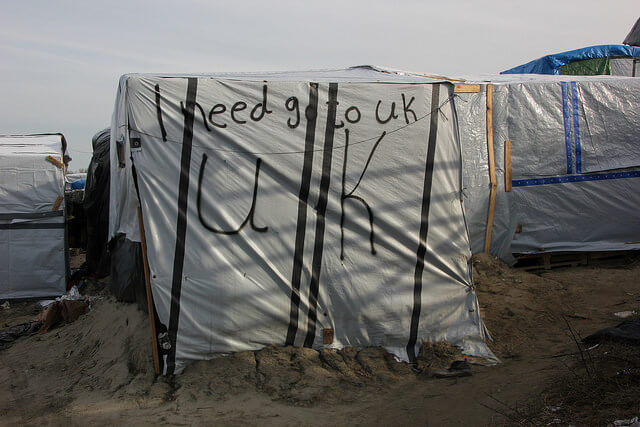Around 1000 people were removed from a Sports hall in Grande-Synthe, Northern France, in the largest eviction so far this year.
French police “evacuated” around 170 people living inside and around 800 who had settled around the sports hall, offered by local authorities toto accommodate migrants since December 2018. The eviction proceeded calmly and people were driven to emergency shelters across Northern France. However, many of the former inhabitants, a majority of which are Iraqi Kurds, are expected to return quickly to the settlement awaiting a chance to cross the channel to the UK.
Following an order by the French Council of State in June, the northern prefecture of France installed sanitary services in the area to support the inhabitants of the settlement. In the beginning of September, an administrative court in Lille ordered the evacuation after complaints fromresidents of the surrounding area.
Martina Villa, a communications executive at Doctors of the World, commented: “These evictions are a show of institutional violence, displacing people and forcing them to leave the only areas where they might have felt some safety, even if it was just tents. We are concerned about people not knowing where they are being taken and not having been able to access people we know have medical issues.”
Groups of people settled in a makeshift camp in a nearby forest reportedly experienced greater levels of physical violence by police, who took their tents, burnt food and cooking material, and confiscated water and milk.
NGOs report that migrants in northern France experience constant police harassment and crackdowns on makeshift camps. While in 2016 the charity HelpRefugees would expect a tent to last about six months, this period has shrunk to no more than a week. “The hostile environment has been exported here,” Maddy Allen, the Help Refugees field manager in France, said that the increased police presence around the ports has resulted in change of irregular routes to the UK from trucks to boats. She also bemoans the loss of communal space: “When the Jungle was stable, communities were able to form. Activities such as cooking together and setting up schools provided some social and mental health benefits.”
For further information:
- ECRE, The French Council of State Orders Sanitary Measures for Migrants in Grande-Synthe, June 2019
- ECRE, UK: Scheme to Transfer Unaccompanied Children from Camps in France Ending, May 2019
- ECRE, France: 2 Years After the Demolition of ‘The Jungle’, Camp Clearances Continue, October 2018
Photo: (CC) malachybrowne, January 2016
This article appeared in the ECRE Weekly Bulletin . You can subscribe to the Weekly Bulletin here.

